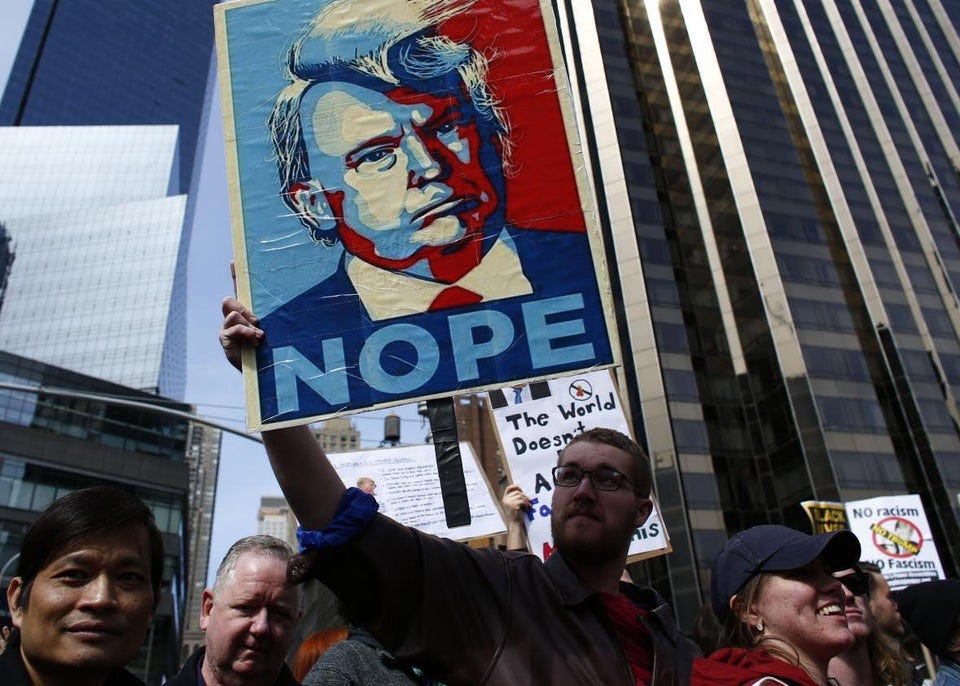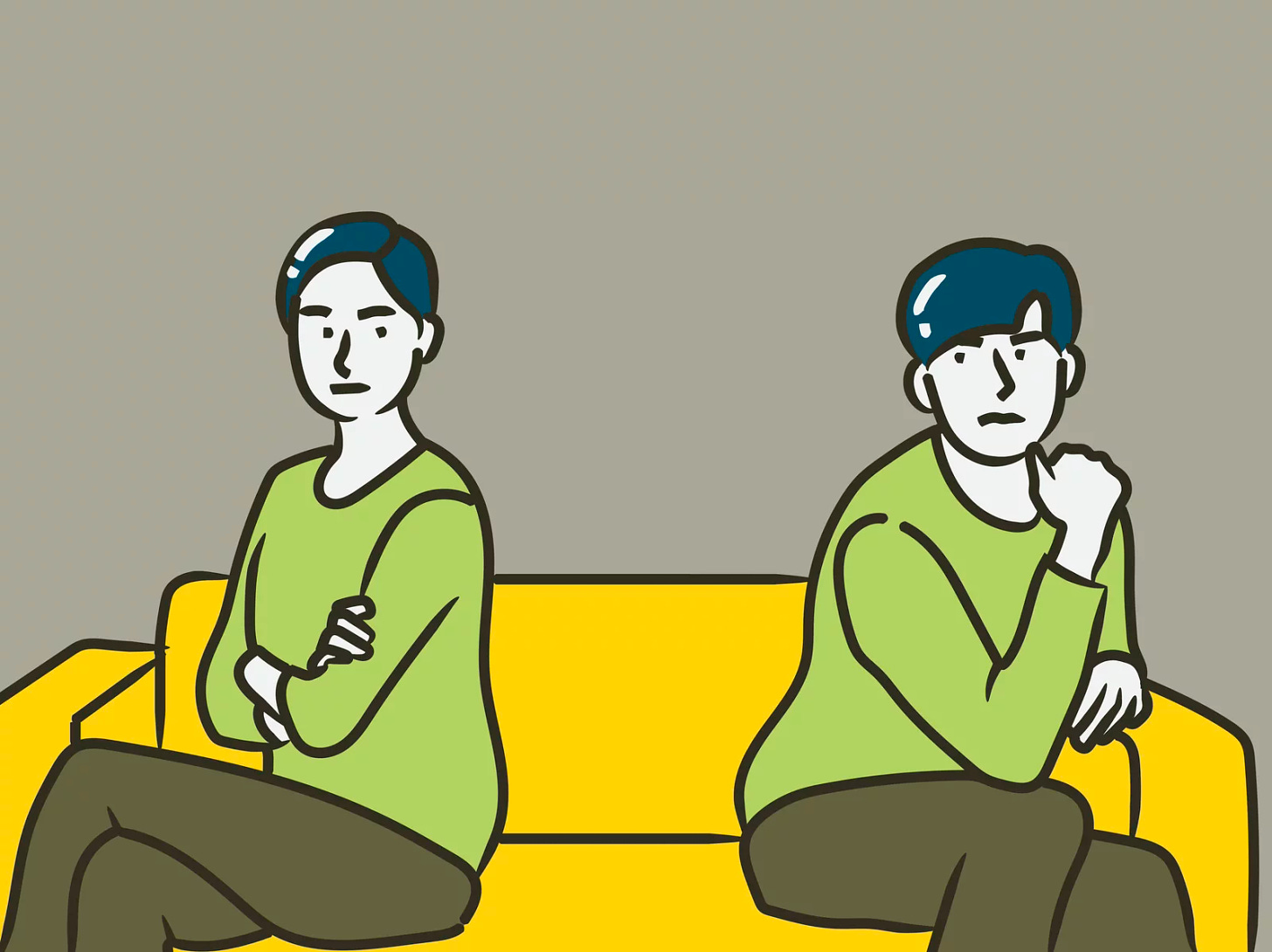Ricochet is the best place on the internet to discuss the issues of the day, either through commenting on posts or writing your own for our active and dynamic community in a fully moderated environment. In addition, the Ricochet Audio Network offers over 50 original podcasts with new episodes released every day.
 Stop Blaming Trump Over Lost Friends
Stop Blaming Trump Over Lost Friends
Trump Isn’t The Real Problem. His Haters Are, Mostly.
Go to your favorite internet search site – mine is duckduckgo.com – and search “friends lost over Trump.” Or some variation.
You will quickly find an array of articles of how anti-Trumpers have canceled friendships over someone’s support for Trump. Like this one, from a post by Doug McKinnon in The Hill, a Capitol Hill newspaper:
“One casual friendship abruptly ended last year because I would not acknowledge that Trump is a climate change denier who advances the insidious goal of killing off humanity. The person making that charge is an accomplished executive.
“When I politely asked over the phone if this person truly believes Trump’s ultimate ‘goal’ is to kill off the world — including his children, grandchildren, and future Trump generations — my friend screamed at me and then hung up, forever.”
And that’s pretty mild as the Trump-related cancellations have gone. This, from National Public Radio:
“I did straight up say, ‘Dude, I’m done. Lose my number,’ ” said Shama Davis from Los Angeles, recalling when he “unfriended” a guy he’d been friends with since high school 25 years ago.
“I just hung up on my end and proceeded to just block him in every possible way,” said Joni Jensen from New York, still fuming over the guy she felt compelled to dump.
And betraying just a tinge of regret about cutting off his cousins, Ricardo Deforest of Tampa, Fla., conceded, “I hate to say it because family is everything,” before unabashedly proclaiming, “I disowned them. In my mind they’re not family anymore.”

That’s pretty severe. And for the record, it’s not just anti-Trumpers canceling pro-Trump “friends.” Pro-Trumpers are doing it, too. This, from a New York Times op-ed from Apri 2016 by anti-Trumper and Republican Peter Wehner:
“While I haven’t lost any friendships during this Trumpian moment, at least not yet, I certainly haven’t been immune to the heightened tension. Several friends whose political views have often coincided with mine in the past have voiced their anger to me over my public opposition to Mr. Trump’s candidacy.
“One close longtime friend told me that my criticism of Mr. Trump stemmed from my desire for attention and notoriety and a longing for the favor of liberals. He was questioning not my reasoning but my motivations. His concern wasn’t about policy; it was about the state of my soul.”
Wehner thinks Trump is to blame for all this. “The candidacy of Donald J. Trump is not only fracturing the Republican Party, but it is also breaking up friendships as well,” he wrote in his April 2016 op-ed.

Is he? Or is it the state and condition of our friendships and our culture in general? Is Trump really to blame, or was he just a catalyst that exposed the shallowness of our own relationships, and more importantly, our inability to manage or talk through legitimate disagreements? Have we lost the ability to manage the inevitable conflicts we all have with each other, even our own family members?
How big is the problem? This, from The Atlantic:
In a Reuters/Ipsos poll conducted a couple of months after Trump’s 2016 victory, 16 percent of respondents said they had stopped communicating with a friend or family member because of the election. Four years later, many such relationships are still in disrepair. Corin Goodwin, a 53-year-old communications consultant in Seattle, hasn’t seen her dad since October 2016, when they had a falling-out over the presidential race, in which he supported Trump and she supported Hillary Clinton. Since then, they’ve had only occasional email contact. “When he passes, I don’t know if I will even be informed, which really freaks me out,” Goodwin told me. (Goodwin and others mentioned in this article were not comfortable putting me in touch with the friends and family members with whom they disagreed, so I was unable to hear the other sides of these stories.)
Sixteen percent of Americans is roughly 30-40 million working-age and senior/retired Americans. That’s no small potatoes.
Confession: I have done my share of canceling. Not terminating friendships per se, but “unfriending” people on Facebook for their erratic, overly partisan, and unsubstantiated posts. I think of that as managing my Facebook feed, not defining friendships, but that’s now how people see it anymore (when did Facebook become the arbiter of “friendship?”) But yes, I have terminated communications with a number of people over their admonitions of me (to put it mildly), personally, for my refusal to repudiate Trump or mischaracterize some of the organizations that are allegedly supporting his “racist” and “white supremacy” ways. Of course, I largely reject that based on the totality of Trump’s history and record – including separating the man from the record – not what the media tells me.
When did Facebook become the arbiter of “friendship?”
And there is the problem. I carefully challenge people’s assumptions and beliefs (“have you considered. . .”). Many don’t appreciate that. Few – not all – are unwilling to consider that they may be misinformed, even wrong.
But am I willing to have my views and beliefs challenged? I hope so. I have always tried to remember to be humble and consider that I am wrong. It is part of my faith. I am open to correction, and my mind has changed on some issues over time. For example, I was so virulently anti-Trump in 2016 (I supported Rick Santorum, then Marco Rubio, then Ted Cruz in my state’s primary election) that I left the GOP for 13 months, registering as an Independent in Pennsylvania. I literally stared at my absentee ballot in 2016 for 3 weeks deciding whether to vote for Trump or another option.
A question: have we allowed too much - everything - to become overly political, or politicized? Can we not allow room for disagreement over politics while recognizing and respecting our basic humanity, our origins, our families, and our shared values?
I reluctantly voted for Trump in 2016 (I could never bring myself to support Hillary Clinton). And I enthusiastically supported him in 2020. I have no regrets, especially given what we’re seeing now.
I lost friends in the process. However, I discovered new ones. I deepened others. Others have written me off, including “friends” in the lobbying world, Republicans, who were all-in for Biden, I suspect for “economic” reasons. Money speaks loudly in Washington, DC, and Trump wasn’t friendly to traditional DC lobbyists. In other cases, cultural or social issues are a factor. For example, Critical Race Theory, and weak-minded Christians being sucked into its religious trappings, despite its Marxist affiliations.
And, of course, social circles. People like being liked and part of a club, and tend to migrate towards the views of their tribes. That’s true everywhere. And here in the Washington, DC, area, it’s become very, very, anti-Trump (folks here like retaining and expanding power inside Washington’s beltway – it’s a nice way to feather the nest). They’re helping the local elitists circle the wagons. That’s their tribe. Their source of income. Their friends. Their contacts. I get that. They now wear blue; I’m still on Team Red.
My great fear is that America is becoming overly tribal, and people are moving with their feet. Republican-minded voters in California and other blue states are moving in droves to neighboring states or places like Texas. Other conservative-minded people are departing high-tax northeastern states like New Jersey, New York, and Pennsylvania for friendly southern confines like South Carolina and Florida, even Georgia.
My wife and I are looking at new homesites, and one of my criteria is how the locals voted in 2016 and 2020, and who their US House member is. That is not healthy in the long term, but I have learned the hard way how difficult it is to be around people – even churches – who do not share my basic beliefs and values.
I may be part of the problem. But can you blame me? Does anyone want to live among people who not only don’t like them but will call the police over slights? It happens. Diversity is one thing; hostility, another.
Houston, we have a problem. We have lost the art and skill of communicating across political lines and lost the ability to trust each other despite differences. We have lost our focus on that which unites us. We need to find our way back. Fortunately, we have organizations like Braver Angels and the Convergence Center for Policy Resolution that are helping us do that. And they have a very heavy workload.
But here’s the thing: While I’m very open to building, or rebuilding bridges with my one-time friends, I strongly suspect the feeling is not reciprocal. After all, it is now not fashionable to have “pro-Trump” friends (defined as having voted for Trump at least once). The bridge-building, if they’re really interested, begins with them.
After all, you won the last election. Graciousness always starts with the winner. And we’re still waiting.
Published in General



Rush recommended Salena Zito and Brad Todd’s 2018 book The Great Revolt, highlighting “groups of undecided voters, especially in the Midwest, process their hesitations about Trump and their overriding anxieties about globalism and traditional politics.”
I’m suspecting that the proliferation of political views favorable to China and the censoring and throttling of viewpoints antithetical to China in big tech social media have made leftists more comfortable visibly spreading their intolerance, and are more belligerantly doing so. After, all, who is going to be against them that can stand? Their opponents’ views will likely be cancelled, deleted and forgotten. I don’t think we can discount the spreading influence of China in all of this. China definitely had an ax to grind with Trump after he was able to successfully push back in trade talks. Trump represented an existential threat to both Democrats and Xi Zinping.